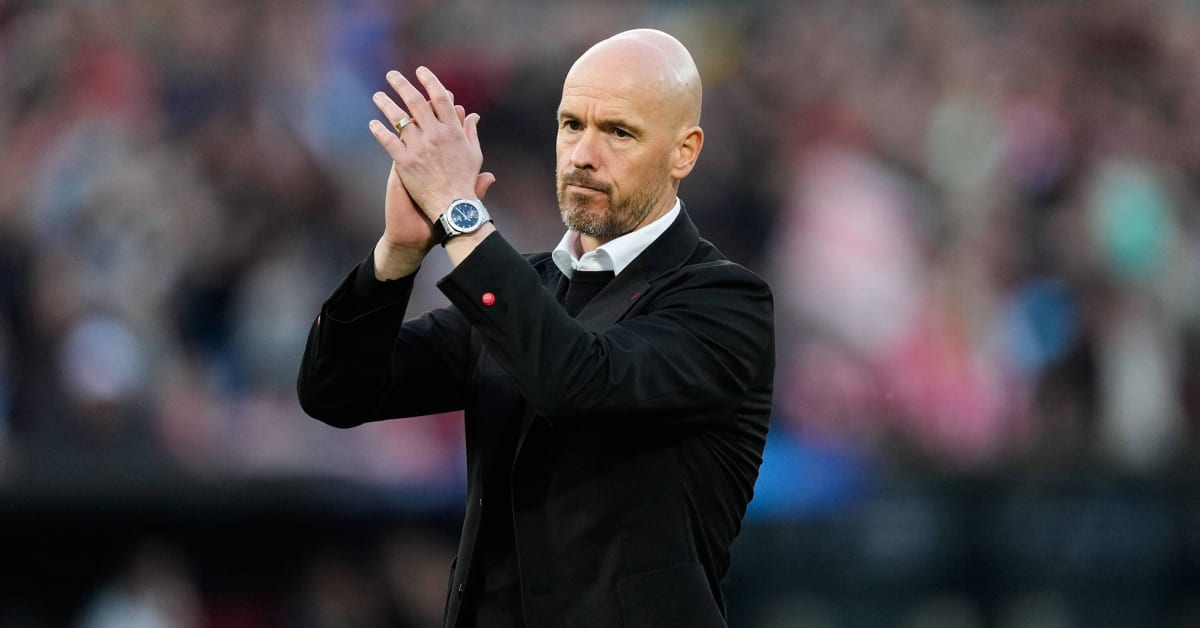What Erik ten Hag Will Need to Succeed at Manchester United
With each new Manchester United appointment, there comes a sense of mounting futility. Erik ten Hag has been given an initial three-year contract, with the option of a further year, but it has been a long time since it seemed possible that a United manager might last that long. It may be noted that ten Hag has almost nothing in common with his four predecessors in the unenviable role of replacing Sir Alex Ferguson—nothing other than the fact that, at the right moment, he was highly thought of enough by the right people to attract the attention of the Manchester United board.
First there was the continuity appointment: David Moyes was Scottish, had done well at Everton, and seemed to offer a similarly uncomplicated approach to that of Ferguson. Then, after Louis van Gaal’s two-year tenure that brought an FA Cup, there was José Mourinho, all Machiavellian guile and defensive organization but appointed several years after his peak, a guarantee less of trophies than of strife. Then came Ole Gunnar Solskjaer, the sunshine man, a welcome antidote to the sourness of the end of the Mourinho era. But he was essentially somebody whose only notable tactical accomplishment was setting up a team to sit deep against high-level opposition and strike on the break.
Finally, most inexplicably of all, came Ralf Rangnick, the godfather of gegenpressing, a supreme sporting director and a man who had pioneered the development of the Red Bull family of clubs. A meticulous long-term planner, he was asked to do a short-term job as interim manager with a longer-term role as a consultant, although because that was a role that was never outlined, players broadly ignored him. Why, after all, would you commit to an unfamiliar and complicated style of play for somebody who would be leaving in a few weeks?
Who knows what the board thought it was getting? It smacked, as so much else has in the Glazer ownership, of a complete lack of football understanding. This brings us to where all discussions of Manchester United must inevitably lead: to Cristiano Ronaldo. Solskjaer wanted a holding midfielder, ideally Declan Rice. He was told the budget wasn’t there and that he would have to wait a year, but then the board, with help from Ferguson and former United captain Rio Ferdinand, signed Ronaldo. It was done largely, it seemed, to prevent him from joining Manchester City—although it’s hard to imagine how he could ever have fit into a Pep Guardiola side. Ronaldo not merely ate into the budget that could more usefully have been spent on players like Rice, but also because of his lack of pace and movement, he stymied the one aspect of Solskjaer’s play that had worked: the lightning counterattacks.
Ronaldo, if he stays, will present a problem for ten Hag, whose football demands his forwards press. United, generally, has few players who have experience of pressing, and at 37, Ronaldo simply doesn’t have the stamina to play as ten Hag demands. Much will depend on whether he is content to be essentially an impact substitute, used to rack up goals against weaker opposition and perhaps to break a deadlock against better teams.
But it’s not just Ronaldo. This is a mess of a squad, the result of a decade of mismanagement. To doubt ten Hag’s capacity to thrive in that environment is not to doubt his abilities as a coach. At Ajax, he has produced, on a limited budget, a side capable of brilliant football that was a last-minute away goal from reaching the 2019 Champions League final.
Ajax, though, is a peculiarly well-run club. It has an integrated philosophy. It has a coherent structure rather than tier upon tier of middle-management of debatable purpose or value. In Amsterdam, ten Hag could get on with coaching. He has no experience abroad other than a stint as the reserve-team coach at Bayern, where he worked alongside Guardiola—which itself adds a potentially troubling psychological dimension. There are a lot of unknowns, and that makes ten Hag a risk.
It’s been reported that he impressed United football director John Murtough, technical director Darren Fletcher and chief executive Richard Arnold with his forthright opinions on United when they spoke to him last month. You hope that is true, that he has not been preferred to other candidates such as Mauricio Pochettino, who has Premier League experience, just because of a Twitter poll run by Gary Neville that showed 82% were in favor of ten Hag.
Only three managers have ever won the league with Manchester United. It’s possible ten Hag may become the fourth, but with so much else wrong with the club, the truth is that it may not much matter who the manager is. Nobody can succeed unless the wider structures are rectified.
More Soccer Coverage:






